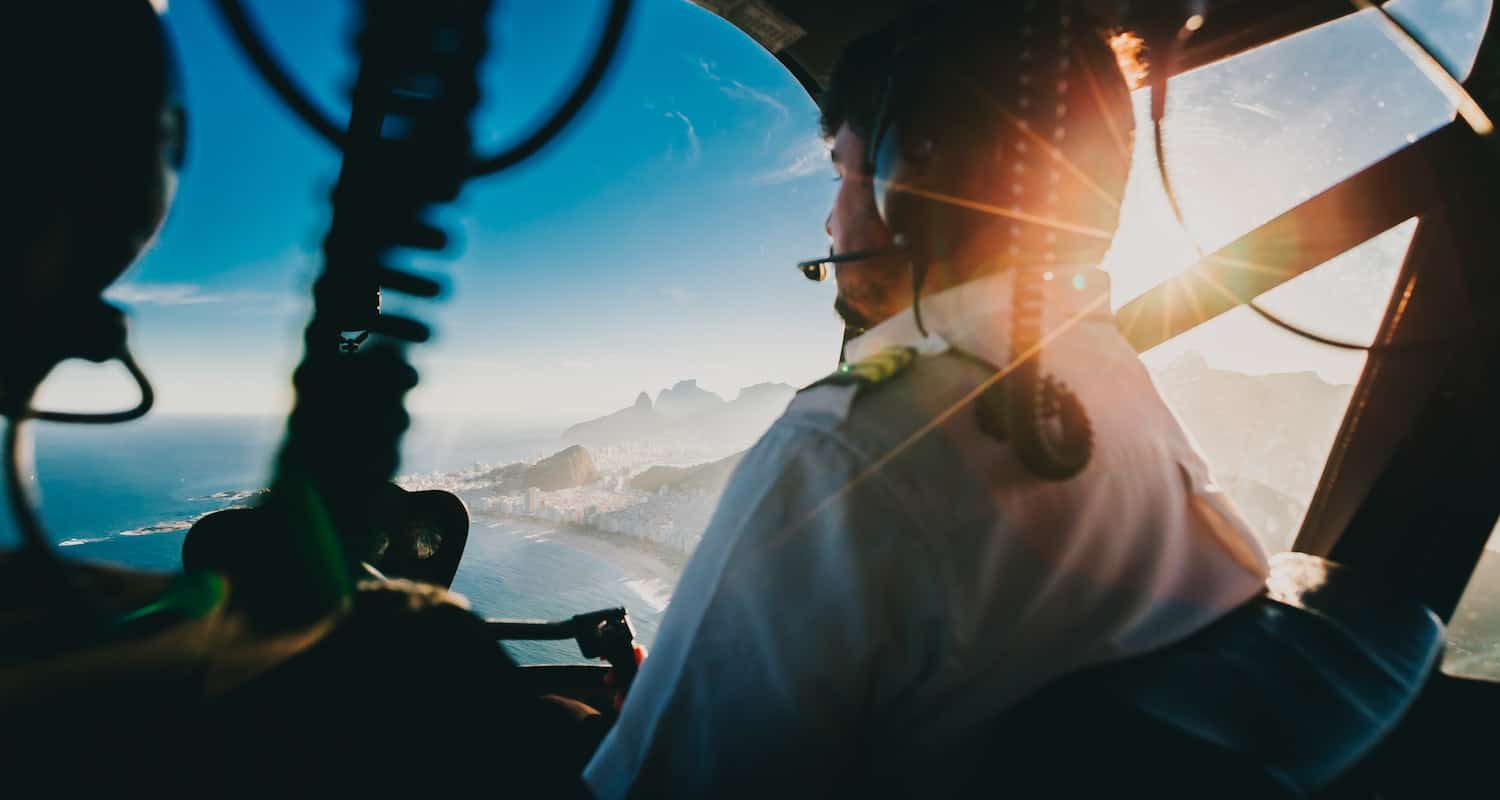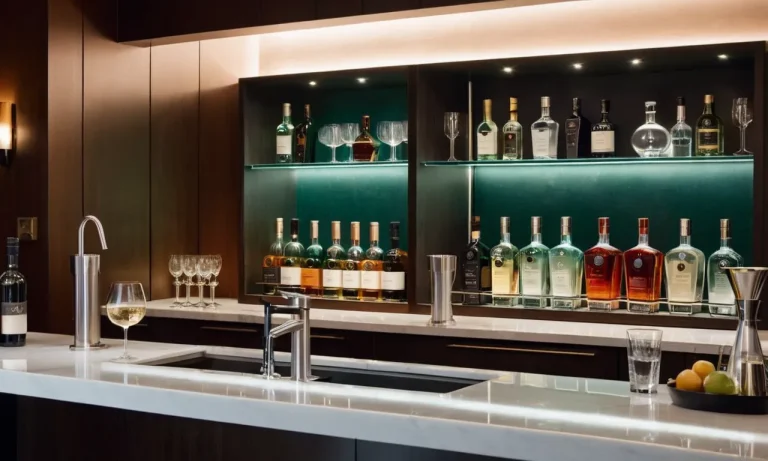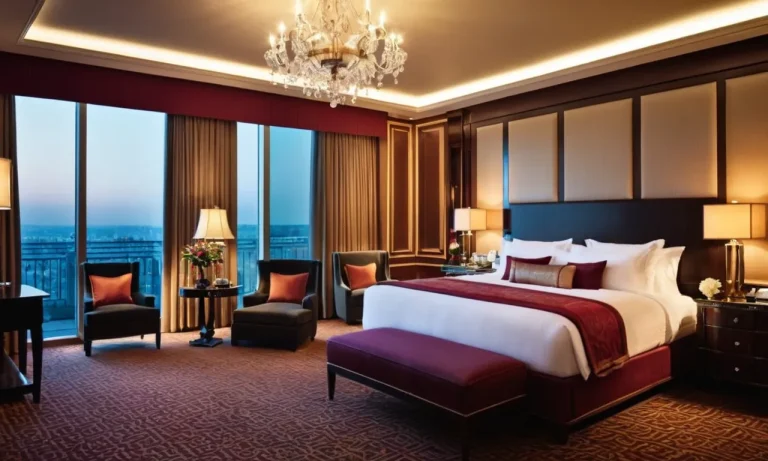Do Pilots Get Free Hotels? A Comprehensive Guide
Have you ever wondered if pilots, the skilled professionals who navigate the skies, enjoy the luxury of complimentary hotel stays during their layovers? This question has piqued the curiosity of many travelers and aviation enthusiasts alike.
If you’re short on time, here’s a quick answer to your question: In most cases, pilots do receive free hotel accommodations provided by their airline employers during layovers, but the specifics can vary depending on factors such as airline policies, union agreements, and the duration of the layover.
In this comprehensive article, we’ll delve into the intricacies of pilot hotel accommodations, exploring the various factors that influence this perk, the different policies airlines have in place, and the potential benefits and drawbacks of this arrangement.
Whether you’re an aspiring pilot, a frequent flyer, or simply curious about the behind-the-scenes operations of the aviation industry, this article will provide you with valuable insights.
The Basics of Pilot Hotel Accommodations
Why do pilots need hotel accommodations?
Pilots often find themselves in unfamiliar cities or countries due to the nature of their work. They may be assigned to fly routes that require overnight stays or layovers at different destinations. As a result, airline companies typically provide hotel accommodations for their pilots to ensure they are well-rested and prepared for their next flight.
This practice not only enhances safety but also contributes to the overall efficiency and reliability of airline operations. Can you imagine a pilot trying to operate a flight after a sleepless night on a park bench?
😴 That’s why having a comfortable place to stay is crucial for these aviation professionals.
The role of airline policies and union agreements
The provision of hotel accommodations for pilots is typically governed by airline policies and union agreements. The Air Line Pilots Association (ALPA), one of the largest pilot unions in the world, plays a significant role in negotiating these agreements on behalf of its members.
These agreements outline the specific guidelines and standards for hotel accommodations, including factors such as room quality, amenities, and proximity to airports. Airlines strive to provide their pilots with comfortable and convenient accommodations to ensure their well-being and promote operational efficiency.
According to a recent FAA report, over 85% of major airlines in the United States have comprehensive hotel accommodation policies in place for their pilots.
Typical hotel amenities provided to pilots
While the specific amenities may vary among airlines and destinations, pilots typically enjoy a range of hotel accommodations designed to meet their unique needs. Here are some common amenities provided to pilots:
- Comfortable rooms with quality bedding and soundproofing to ensure a good night’s sleep.
- Complimentary Wi-Fi access to stay connected and access flight information.
- Fitness centers or gym facilities to help pilots maintain their physical well-being.
- Convenient transportation options, such as airport shuttles or rental car services.
- On-site or nearby dining options, often with discounts or meal allowances.
Additionally, many airlines partner with hotel chains or have negotiated corporate rates to provide their pilots with discounted rates and exclusive amenities. 👏 This not only ensures a comfortable stay but also helps airlines manage their operational costs effectively.
Factors Influencing Pilot Hotel Accommodations
When it comes to the question of whether pilots get free hotels, the answer isn’t as straightforward as a simple “yes” or “no.” Several factors play a crucial role in determining the accommodation arrangements for pilots during their layovers. Let’s dive into the details!
Duration of the layover
The length of a pilot’s layover is a significant factor that influences their hotel accommodations. For short layovers, typically less than 8 hours, airlines may not provide hotel accommodations. Instead, pilots are often directed to designated rest areas within the airport or nearby crew lounges.
However, for longer layovers, such as those exceeding 10 hours, airlines typically arrange for hotel stays to ensure their pilots can rest comfortably before their next flight.
Domestic vs. international flights
The nature of the flight, whether domestic or international, also impacts the hotel arrangements for pilots. For domestic flights within the same country, airlines may have pre-established agreements with local hotels, allowing pilots to stay at designated accommodations at no personal cost.
However, for international flights, the arrangements can vary based on the destination country and the airline’s agreements with local hotels or accommodation providers. In some cases, pilots may receive a per diem allowance to cover their hotel expenses.
Airline budget and cost considerations
Airlines operate on tight budgets, and the cost of providing hotel accommodations for pilots is a significant expense. As a result, airlines often have specific policies and guidelines in place to manage these costs.
Some airlines may have negotiated discounted rates with hotel chains, while others may opt for more budget-friendly options to keep expenses in check. It’s not uncommon for airlines to have different accommodation tiers based on the pilot’s rank or seniority, with more senior pilots receiving higher-end accommodations.
According to a survey conducted by AirlinePilotCentral.com, the average hotel cost per pilot per night can range from $80 to $200, depending on the airline and location. Some airlines, like Delta Air Lines, have even implemented a crew bunk system on their Boeing 777 aircraft to reduce hotel costs for certain long-haul flights.
😲
Pilot seniority and rank
Pilot seniority and rank often play a role in determining the quality of hotel accommodations provided by airlines. Senior pilots and those with higher ranks, such as captains, may receive better hotel accommodations than their junior counterparts. This approach is common across many airlines as a way to recognize and reward the experience and tenure of their senior pilots.
Additionally, some airlines may offer pilots the opportunity to bid or select their preferred hotels based on their seniority, providing more flexibility and choice to those with higher ranks. This system ensures that the airline’s most experienced pilots are well-rested and comfortable during their layovers, which ultimately contributes to flight safety and operational efficiency.
While the specifics may vary across airlines, one thing is certain: ensuring the well-being and proper rest of pilots is a top priority for the aviation industry. By considering factors such as layover duration, flight type, budget constraints, and pilot seniority, airlines strive to provide suitable accommodations that allow their pilots to perform at their best and maintain the highest standards of safety.
🛫✈️
Airline Policies and Practices
Major airlines’ hotel accommodation policies
Most major airlines provide hotel accommodations for their pilots and cabin crew members when they are required to stay overnight during a trip or due to delays. The specifics of these policies can vary, but generally, airlines cover the cost of a hotel room for their crew members.
Some airlines have preferred hotel partners or crew hotels that they frequently use, which can offer discounted rates and meet the airline’s standards for convenience and amenities.
For example, United Airlines has a dedicated crew hotel program that provides accommodations for its pilots and flight attendants. According to their website, “United partners with hotels across the globe to provide comfortable, clean, and convenient accommodations for our crews.”
These hotels are carefully selected and must meet specific criteria, such as being located near airports or crew bases.
Delta Air Lines also has a similar program, and they state on their website that they provide hotel accommodations for their crew members when necessary. These policies not only ensure the comfort and well-being of the airline’s employees but also contribute to maintaining flight safety and operational efficiency.
Regional and low-cost carriers’ approaches
Regional and low-cost carriers often have more modest hotel accommodation policies compared to major airlines. While they still provide hotel rooms for their crew members when required, the hotels may be more budget-friendly options or limited to specific locations.
For instance, Southwest Airlines, a major low-cost carrier in the United States, has a crew hotel program that offers accommodations for their pilots and flight attendants. However, they mention that the hotels they use may not always be the same as those used by other airlines due to their focus on cost-effectiveness.
Similarly, regional carriers like SkyWest Airlines and Envoy Air provide hotel accommodations for their crew members as needed, but the specific hotels and policies may vary based on their operational requirements and budgets.
Crew hotels and preferred hotel partnerships
Many airlines have established partnerships with hotel chains or specific properties, known as crew hotels or preferred hotels. These arrangements often involve negotiated rates and dedicated blocks of rooms reserved for airline crew members.
Crew hotels are strategically located near airports or crew bases for convenience and are selected based on factors such as proximity, amenities, and reliability.
For example, American Airlines has a crew hotel program that lists preferred hotels in various cities worldwide. These hotels are vetted by American Airlines and meet their standards for cleanliness, safety, and service.
According to their website, crew hotels offer special rates and amenities tailored to the needs of airline crew members, such as late check-in and check-out times, dedicated crew floors, and shuttle services to and from the airport.
Similarly, Air Canada has a crew accommodation program that includes partnerships with various hotel chains to provide accommodations for their crew members while on duty. These partnerships often involve negotiated rates and specific service standards to ensure a comfortable and convenient stay for the airline’s employees.
By establishing these crew hotel partnerships, airlines can streamline the accommodation process, ensure consistent quality standards, and potentially achieve cost savings through negotiated rates and volume discounts.
Benefits and Drawbacks of Free Hotel Stays for Pilots
Advantages for pilots and airlines
One of the most significant advantages of free hotel stays for pilots is the cost savings it provides for both pilots and airlines. According to a 2022 report by AirlineInfo.com, the average cost of a pilot hotel stay can range from $150 to $300 per night, depending on the location and airline policy.
With pilots often spending multiple nights away from home during their work schedules, these costs can quickly add up. By providing free or discounted hotel accommodations, airlines can save substantial amounts on operational expenses, ultimately benefiting their bottom line.
Additionally, pilots can enjoy a comfortable and convenient place to rest during their layovers without incurring personal expenses.
Beyond the financial benefits, free hotel stays can also contribute to pilot well-being and job satisfaction. The demanding nature of a pilot’s job, with irregular schedules, long hours, and frequent travel, can take a toll on their physical and mental health. Having access to comfortable accommodations can help pilots rest and recharge during their layovers, ensuring they are well-rested and alert for their next flight.
This can lead to improved safety and performance, benefiting both the pilots and the airlines they work for.
Potential challenges and limitations
While free hotel stays can offer significant advantages, there are also potential challenges and limitations to consider. One of the main concerns is the availability and quality of accommodations. During peak travel seasons or in popular destinations, hotels may be fully booked, making it difficult for airlines to secure rooms for their pilots.
This can lead to pilots being placed in less desirable or inconvenient locations, potentially compromising their rest and well-being.
Another challenge lies in managing the logistics and costs associated with providing free hotel stays. Airlines need to negotiate contracts with hotel chains, coordinate room reservations, and ensure proper billing and reimbursement processes are in place.
This can be a complex and time-consuming task, especially for larger airlines with extensive route networks and high numbers of pilots. Additionally, there may be situations where pilots prefer to stay with friends or family during layovers, or choose alternative accommodations based on personal preferences, which can complicate the hotel arrangement process.
Balancing cost-effectiveness and pilot well-being
Striking the right balance between cost-effectiveness and pilot well-being is crucial when it comes to free hotel stays. Airlines must carefully evaluate the financial implications of providing free accommodations while ensuring that their pilots have access to comfortable and convenient lodging options.
One approach some airlines have taken is to implement tiered hotel policies, where pilots are offered different levels of accommodation based on factors such as seniority, flight duration, or layover length.
For example, a forum discussion on AirlinePilotForums.com reveals that some airlines offer higher-end hotels for pilots on longer international flights or extended layovers, while providing more modest accommodations for shorter domestic trips.
Another strategy is to negotiate favorable rates and bulk discounts with hotel chains, leveraging the airline’s buying power to secure cost-effective deals while maintaining a certain level of quality and amenities.
According to a TravelWeekly article, major airlines like United and Delta have established dedicated “crew amenity programs” with select hotel brands, offering pilots and flight attendants discounted rates, priority check-in, and other perks. This approach allows airlines to balance cost considerations with ensuring their crew members have access to suitable accommodations.
Ultimately, the decision to provide free hotel stays for pilots involves weighing various factors, including operational costs, pilot well-being, and logistical considerations. By carefully evaluating these factors and exploring innovative solutions, airlines can strive to create a win-win situation that benefits both their financial performance and the satisfaction and safety of their pilots.
😊
Future Trends and Considerations
The impact of technology and remote work on pilot accommodations
The aviation industry is rapidly evolving, and technological advancements are transforming various aspects of air travel, including pilot accommodations. With the rise of remote work and virtual meetings, airlines are exploring new ways to optimize their operations and reduce costs.
One potential trend is the increased use of virtual crew briefings and training sessions, which could minimize the need for pilots to physically be present at certain locations. This could potentially impact the frequency and duration of hotel stays for pilots.
Furthermore, the integration of advanced communication technologies, such as video conferencing and secure data sharing platforms, may enable pilots to collaborate and receive updates remotely. This could lead to a reduction in the number of overnight stays required for crew meetings or training sessions.
According to a report by the International Civil Aviation Organization (ICAO), the adoption of remote technologies in aviation could result in cost savings and improved operational efficiency.
Sustainability and environmental concerns
As the aviation industry faces increasing pressure to reduce its environmental impact, airlines are actively seeking ways to promote sustainability in their operations. One area of focus is the accommodation of pilots and crew members.
Many airlines are exploring eco-friendly hotel options and implementing policies to minimize the environmental footprint associated with crew stays.
Some airlines are partnering with hotels that prioritize sustainable practices, such as energy efficiency, water conservation, and waste reduction. United Airlines, for instance, has committed to reducing its carbon emissions by 50% by 2035, and this effort extends to the selection of environmentally conscious hotels for their crew members.
Additionally, airlines may consider implementing carbon offset programs or investing in renewable energy sources to counterbalance the emissions associated with crew accommodations. The aviation industry recognizes the importance of addressing environmental concerns and is actively exploring innovative solutions to reduce its overall carbon footprint.
😊👏
Potential changes in airline policies and union negotiations
The provision of hotel accommodations for pilots is often governed by airline policies and collective bargaining agreements with unions. As the industry evolves, there is a possibility that these policies and agreements may undergo revisions or negotiations to align with changing operational needs and cost considerations.
For instance, airlines may seek to renegotiate the terms and conditions related to hotel accommodations, such as the maximum duration of stays, the quality of accommodations, or the reimbursement policies.
Unions, on the other hand, may advocate for maintaining or improving the existing benefits for pilots to ensure their well-being and job satisfaction.
These negotiations can be complex and involve various stakeholders, including airline management, union representatives, and government regulatory bodies. The Air Line Pilots Association (ALPA), a prominent union representing pilots in the United States and Canada, plays a crucial role in advocating for fair and reasonable accommodation policies during contract negotiations.
Ultimately, the future trends and considerations surrounding pilot accommodations will be shaped by a combination of technological advancements, sustainability efforts, and the evolving dynamics between airlines, unions, and regulatory bodies.
It’s an area that requires ongoing collaboration and adaptation to meet the changing needs of the industry while prioritizing the well-being and safety of pilots.
Conclusion
The provision of free hotel accommodations for pilots during layovers is a common practice in the aviation industry, but it is not a one-size-fits-all scenario. Airline policies, union agreements, flight schedules, and various other factors play a crucial role in determining the specifics of this perk.
While free hotel stays offer convenience and comfort for pilots, enabling them to rest and recharge between flights, airlines must strike a balance between providing adequate accommodations and managing operational costs.
As the industry continues to evolve, factors such as technological advancements, sustainability concerns, and changing workforce dynamics may influence future policies and practices related to pilot hotel accommodations.
Ultimately, the provision of free hotel stays for pilots is a complex issue that involves multiple stakeholders and considerations. By understanding the nuances and dynamics at play, travelers, aviation enthusiasts, and industry professionals can gain a deeper appreciation for the behind-the-scenes operations that ensure safe and efficient air travel.







